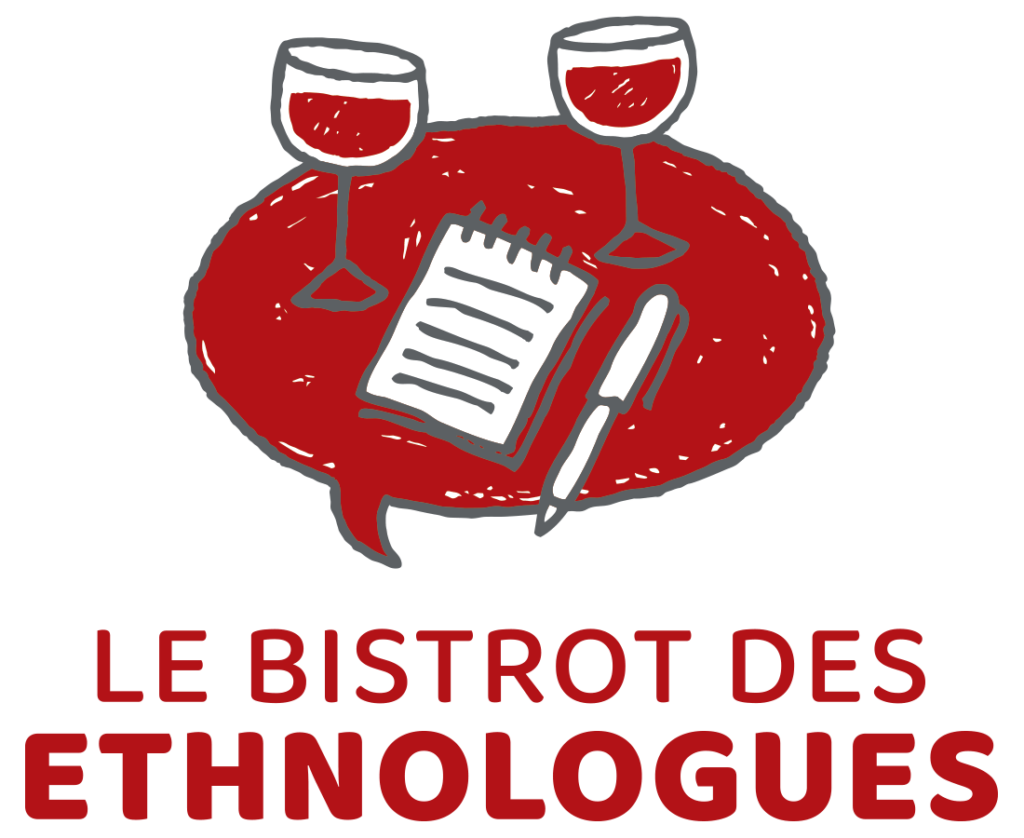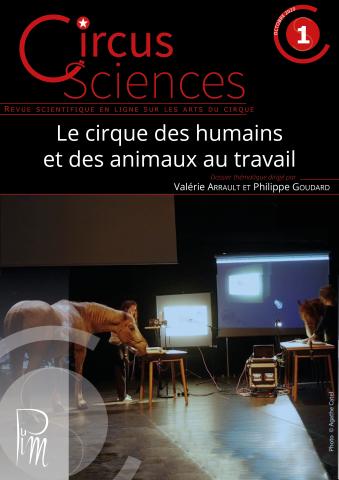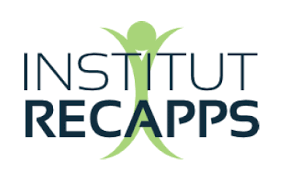Partners
The host team is part ofDS 60: Territoires, Temps, Sociétés et Développement.
UR_UM211 is attached to theUFR STAPS (University of Montpellier).
Team members are scientific experts for various national and international peer-reviewed journals:
- STAPS
- Science and Motricity
- ALTER: European Journal of Disability Research
- Apunts, Educacion fisica y deportes - University of Barcelona
- International Review of Sport Sociology
- Loisir et Société/Leisure and Society
- Perceptual and motor skills
- Psychological reports
- Journal of Sport & Exercise Psychology
- RICYDE, Revista internacional de Ciencias del Deporte
- BODY
bistrot des ethnologues
The Santesih laboratory is a partner of the Bistrot des Ethnologues in Montpellier, run by the A.R.C.E. association (Atelier de Rencontres et de Recherches Comparatives en Ethnologie).
2023/2024 program for the 30th anniversary of the Bistrot des Ethnologues

circus sciences
Partnership withPôleuniversitaire d'enseignement et de recherche en cirque unique en Europe de l'Université Paul-Valéry Montpellier 3

institut recapps
Launch of the Collaborative Research Institute on Physical Activity and Health Promotion (ReCAPPS)
June 11 in Lyon
Promoting health through physical activity: going beyond the medical prescription

The Institut ReCAPPS brings together researchers in the humanities and social sciences whose work focuses on issues relating to the design, implementation and use of systems for promoting health through physical activity and sport. The institute promotes collaborative approaches that include civil society players and users, in line with the perspective of health promotion as defined in the Ottawa Charter (1986). It is particularly interested in social inequalities and health environments.
The benefits of physical activity in preventing disease and promoting psychosocial balance are well known. The biomedical literature is prolific in demonstrating their role in the treatment of chronic diseases (severe obesity, diabetes, asthma, cardiovascular problems...) and cancers (breast, prostate...). Many psychological problems can also be alleviated through physical exercise and/or sport. The recent INSERM collective report on physical activity, prevention and treatment of chronic diseases, published in February 2019, speaks volumes on this subject. What remains to be done is to specify the forms and conditions of practice, including support, frequency, duration and intensity of physical activity for each
profile of individuals with a view to prevention or care.
At first glance, this scientific context seems to reinforce the political choices placing the medical prescription of physical activity at the forefront (article 144 of law n°2016-41). Decree n°2016-1990 of December 30, 2016, on the conditions for dispensing adapted physical activity prescribed by the attending physician to patients with a long-term condition endeavors to specify the conditions of implementation. However, implementation is proving tricky, not least because of the variety of professionals likely to supervise these adapted practices. Overwhelmed by public health missions, general practitioners find it hard to prescribe physical activity. A paradox also seems to be emerging: the "target" populations, most often socially disadvantaged, remain the furthest removed from physical activity and sport. Doesn't this medicalized approach to the problem run the risk of reinforcing social and territorial inequalities in health?
The medicalization of health through physical activity is finally showing its limits. It therefore seems urgent to analyze this public action "in the making" from a multi-disciplinary perspective, giving pride of place to the human and social sciences. In this field, although scientific research is already well advanced, it is struggling to be taken into account by public authorities. Shouldn't the evidence of a territorialized government of bodies today lead decision-makers to question the individualization of the approach? We know that making people responsible for their own health leads to certain social groups feeling guilty, and to the stigmatization of their practices and lifestyles, with counter-productive effects in the long term. The conditions most conducive to regular, emancipating physical activity can also easily be brought to light. With this in mind, research in the humanities and social sciences can identify the most relevant socio-ecosystems. The professional approach, for its part, examines the most appropriate ways of supervising practices, depending on the audience and the context: it enables us to go beyond corporate issues and characterize the essential skill blocks needed to certify a safe and appropriate approach. The study of the use of the proposed devices sheds light on the multiple ways in which public health messages are appropriated, or even distanced, by the various players involved: physical activity professionals often remain powerless in the face of these behaviours of resistance, avoidance or deliberate non-use.
Here, as elsewhere, the success of our actions and programs depends on a broad, interdisciplinary approach based on the human and social sciences, with an emphasis on collaborative approaches: as part of a health promotion and education paradigm, we need to increase the number of intervention research projects involving the worlds of academia, associations and politics, with a special focus on users and companies. This reflective and collaborative approach is essential to ensure the mobilization of all populations, especially those who are the most remote and reluctant to engage in physical activity. It is a sine qua non for the cultural development of active lifestyles, physical exercise and sports for all, and the widespread use of environmentally-friendly mobility. We now need to set this virtuous dynamic in motion with a view to lifelong education, integrating and going beyond a vision of public action based on medical prescription alone. The latter seems far too restrictive and detached from social realities to achieve the ambitious objectives assigned to the promotion of physical activity for the purposes of overall health, or more simply, day-to-day well-being.
Gilles VIEILLE MARCHISET, Université de Strasbourg
Claire PERRIN, Université de Lyon 1
Clément PERRIER, Université de Grenoble-Alpes
Sylvain FEREZ, Université de Montpellier
Jean Paul GENOLINI et Jean- Charles BASSON, Université de Toulouse 3
Yan DALLA PRIA, Université Paris-Nanterre
Isabelle CABY, Université d'Artois
Coralie LESSARD, Université catholique de l'Ouest
And the researchers.es of the Institut RecAPPS*
* This association (Institut de Recherche Collaborative sur l'Activité Physique et la Promotion de la Santé) will be launched on June 11, 2019 at the Maison des sciences de l'homme in Lyon: a round table will address, between 3pm and 5pm, the issues of public action, favorable environments and skills in the field of health promotion through physical activities.
Press release